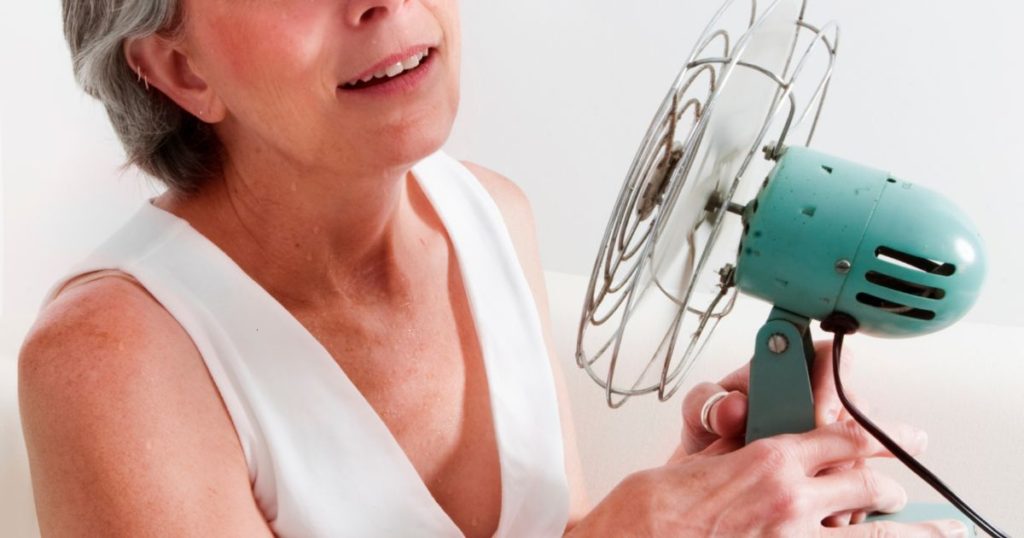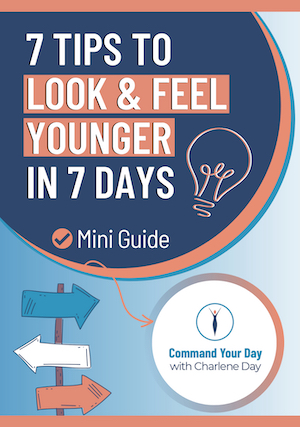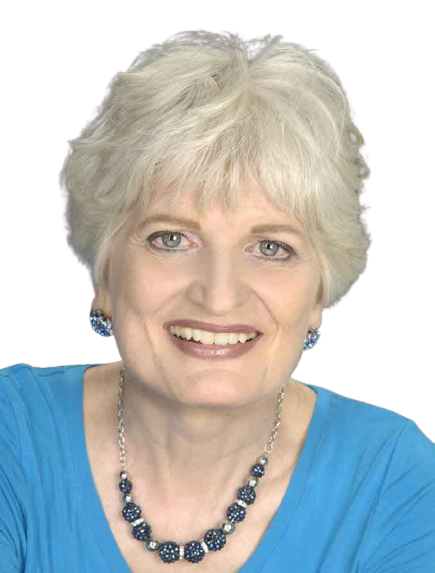This month in honour of Mother’s Day, I addressed some women’s health issues. In this last post on this theme, we will be addressing deficiencies that produce menopausal problems and osteoporosis.
Menopause
Menopause can happen either naturally or through surgery. Technically, menopause happens after the ovaries have ceased to function for over a year. Before that it is termed peri-menopause. Many women experience symptoms of hot flashes, sweating, mood swings, headaches, higher risk of heart disease, breast cancer and osteoporosis during this time.
In the past women have traditionally gone to doctors to get hormone replacement therapy (HRT). While proclaimed as the primary missing ingredient for the menopausal woman, estrogen also has been strongly recommended by the medical and pharmaceutical industries for the prevention of cardiovascular disease and osteoporosis. However, in 1998 the results of the second largest study on HRT were published, indicating that HRT increases the risk of heart disease, as well as breast cancer, osteoporosis and gall bladder disease.
In light of this recent scientific research, women began looking for natural alternatives. Along with a healthy diet, and lifestyle, consuming the right supplements and herbs will help regulate the normal hormone fluctuation that occurs during menopause.
A healthy diet eliminates red meat, processed meat, organ meats, skin of fowl, fried foods, high-fat dairy products, alcohol, refined sugar, spicy food and salt. Instead the concentration is on an alkaline diet – fowl with skin removed, sea fish at least three times a week (good for iodine), lots of vegetables and fruit, beans and lentils, whole grains and raw nuts and lots of clean water. This will help to bring about a pH body balance for normalized hormones.
The supplements for menopause always start with a good balanced multi-vitamin/mineral supplement. Vitamin E with selenium has a normalizing effect on estrogen levels. If you have chlorinated drinking water, you need more vitamin E. Vitamin E is good for hot flashes, breast tenderness, muscle cramps and vaginal dryness. Vitamin C with bioflavonoids helps to diminish hot flashes and night sweats. It also helps prevent osteoporosis. B complex is important to help your body deal with stress, and replenish the adrenals. B vitamins help depression and have a calming effect. B complex is good to counteract fatigue, irritability, craving for sweets, fluid retention, and headaches.
Calcium/Magnesium is very important to maintain your balance through menopause. It is helpful for headaches, insomnia, when anxious or tense, osteoporosis or to curb cravings for chocolate. GLA an essential fatty acid, is a hormone balancer and helps with hot flashes. It also aids headaches and any inflammation in the body. Omegas are also good for hormone balancing and stabilizing mood changes. Beta-Carotene promotes healthy mucous membranes in the vaginal area. Zinc activates over 80 liver enzymes and helps boost energy.
One major deficiency that is often overlooked with menopausal symptoms is what is called a plant estrogen or phytoestrogen. Phytoestrogens are the plant versions of the human hormone estrogen. The best-researched phytoestrogens are isoflavones, which are found in soy.
Isoflavones are plant substances, which can act as estrogens in the body and have protective functions. Isoflavones can compete with estrogen for the same receptor sites thereby decreasing the health risks of excess estrogen. They can also increase the estrogen activity. If during menopause the body’s natural level of estrogen drops, isoflavones can compensate this by binding to the same receptor, thereby easing menopause symptoms such as hot flashes as a result.
The best way to consume isoflavones is in the form of soy. Soy contains many types of isoflavones, but the most beneficial are genistein and daidzein. Genistein improves bone strength & density. Daidzein prevents bone loss. Isoflavones can also reduce the risk of breast, bowel, and lung cancer.
Not all soy foods contain soy isoflavones: When crushed, defatted soy flakes are washed in alcohol during the production of soy burgers, soy cheeses, soy milks, and some soy powder mixes, isoflavones are destroyed. If soy protein powders are produced by water-washing the soy-flakes, a much higher isoflavone level is retained. So not only is this a way to ingest high quality amino acids, it also provides the isoflavones needed to decrease menopausal symptoms.
Plant estrogens are also found in herbs. Black Cohosh and Raspberry are phytoestrogens, which helps regulate the luteinizing hormone which fluctuates during menopause. It helps regulate & relieve hot flashes, has a calming effect on the nervous system and helps regulate sleep patterns.
Flaxseed is the richest whole grain source of a class of phytoestrogens called lignans. It reduces cholesterol levels and helps to normalize blood pressure. It shows anti-tumor activity and inhibits cancer growth. It increases metabolism and boosts the immune system.
Dong Quai (also known as angelica) is a phytoestrogen that helps bring relief from hot flashes, relieves vaginal dryness, and traditionally was used as a uterine tonic. Red Clover contains phytoestrogens similar to soy and helps detoxify the liver (a healthy liver is essential for hormonal balance). It also enhances the immune system. Licorice is a source of phytoestrogens. It promotes adrenal function (as you found out earlier, the adrenal glands are the key glands responsible for producing estrogen after menopause).
Osteoporosis
Osteoporosis is a gradual decrease in bone mass and density that can begin as early as the teen years. Bone mass should be at its peak in our late 20s or early 30s, but thanks to a poor diet and lack of exercise, many women are already losing bone in their 20s. Bone loss occurs more rapidly in women than in men, especially right around the time of menopause, when an abrupt drop in estrogen and progesterone can accelerates bone loss.
The most important elements of bones are minerals and amino acids. The most important bone minerals are calcium, magnesium, potassium, phosphorous and fluoride. Equally important is the balance between the minerals. Too much phosphorous or fluoride will create poor bone structure. (Nearly all of us already ingest too much fluoride, thanks to fluoridation of our water.) Without enough magnesium, the calcium can’t be absorbed onto the bone. Vitamins are also involved. For example, vitamin B6 (in B complex) works with magnesium to get calcium onto your bones.
The hormones testosterone, estrogen and progesterone are also actively involved in the making and unmaking of bone. Testosterone and progesterone build bone, while estrogen appears to indirectly slow bone loss. All of these are made from amino acids, the building blocks of all cells.
In osteoporosis, the old bone is being reabsorbed faster than new bone is being made, causing the bones to lose density and become thinner and more porous and fragile. Bone loss seems to be most severe in the spine, wrists and hips. Unfortunately there are usually no signs or symptoms of osteoporosis until a fracture occurs.
To prevent osteoporosis, it is important to reduce or eliminate soda pop and other carbonated beverages, as well as salt, sugar and caffeine consumption, keep meat consumption to a reasonable level (no more than once a day) and decrease alcohol consumption and don’t smoke. Avoid over the counter medications such as antacids and laxatives and avoid severe caloric restriction and yo-yo dieting.
Eat plenty of fresh, green vegetables and whole grains and nuts and seeds. Eating foods high in flavonoids, which help stabilize collagen structures, such as blueberries, raspberries and hawthorn berries are excellent to prevent bone loss. Following all the advice for the menopausal symptoms, will help prevent osteoporosis as well.
Digestive enzymes may be required to optimize digestion for maximum nutrient absorption. It is very important to ensure adequate absorption and the proper utilization of calcium, magnesium, zinc and vitamin D. Vitamin C, B complex, Beta-Carotene, and trace minerals are also needed. Since more vegetable protein is better for maintaining the alkaline balance needed to prevent bone loss, water washed soy protein powder is also important in preventing osteoporosis.
Engage in an active lifestyle that includes both weight bearing and strength training exercise. Exercise is an anti-depressant, stress reliever, fat burner, and bone stimulator.
To sum up, preventing menopause symptoms and osteoporosis requires a balanced lifestyle to support your hormones. Learn stress management techniques, and take time out for relaxation, massage, yoga, meditation and inner growth. Take time for yourself. I know this is hard for women to hear but don’t take on too much. Laugh, love, relax, and feed yourself with positive thoughts.
Do you have a story to share? I’d love to get your feedback. Here on my blog, you’ll get commentluv. That’s great for all bloggers out there. If you leave a comment, you can provide a link back to your own blog. But you don’t have to be a blogger to leave a comment; I’m looking forward to hearing from all of you!
Next week I will cover the dangers of environmental xenoestrogens.
Stay tuned.
Charlene Day




I wonder if menopause is hereditary in its time to start. My mother started in her late 30s and I am finding that I am doing the same now in my mid 50s. Is it really something that can pass on through age by heredity?
When you study genes, you find out that they do not cause anything, they are just field of potential.
Hello Staccey,
It turns out we are we are not genetically determined, we are environmentally determined. So there is a potential through hereditary, but more important is your perception to your environment. So it is important to watch what you eat and all your environmental influences. With this new scientific knowledge available to us now, we see that we are much more in control of our health as we can change our perception to our environment and therefore change our outcome. There are potential tendencies and obviously your mother and you have the same tendency. Just be aware that you can change it if you want to.
It is very much important to maintain a balance between physical exertion and dietary supplementation. For the few who continue to lead life as if they were in their 30’s, it can lead to disastrous injuries or imbalances.
@Stacey .. as rightly said by Charlene its not genetics its environmental. Several factor play their part. Adjusting according to one’s personal condition is the right path.
Hello! Thank you for taking the time to read my blog post and to comment.
You are right, it is important to listen to your body before any physical exertion and also very important to give your body the right nutrients to support your body through the physical exertion.
Charlene
I am 64 years old, I started minopause at 44 years old,I had 2 older sisters that had not started this cycle, This was an awfull experience for me, My Dr. at that time was not very helpful,and I did not know the right questions to ask. Primerin was prescribed, but once i found out about the side effects I stopped taking them after about 6 mo. I hated to leave my home, I always had to carry a wash cloth {in the words of James Brown I’d break out in a cold sweat] lol. anyway to make a long story short, I started taking vitamins and eatting properly, this made a big difforence. Thank you so much for sharing,you’ve answered all of my questions. I wish this info. was available to me when I was going through all of those hot & cold sweats. Peace and blessings….
Thank you for your comment. It sounds like you went through not a fun time. So glad you found vitamins and natural methods through your own searching. So glad my blog was able to answer your questions and I pray that other women have received help from the information in the article.
Feel free to contact me if you have any questions about your current health. It is always good to “nip things in the bud” as they say.
Be well, Charlene
This is really useful. I don’t have issues with sleep as yet, but it’s not something I’m looking forward too!